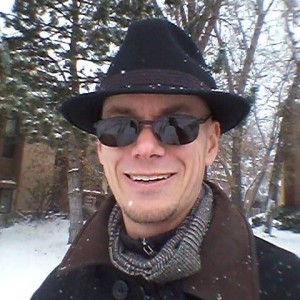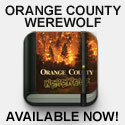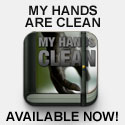About the Author
It’s pronounced ‘Mah-Klayn’. That’s not the way all McLeans pronounce it, but it’s the way my family pronounces our name. And we’re a big family, so there’s more of us than there are of you.

I’m the last child of that big family. To be the last of many children in a loving family is to be known your entire life. From the moment I was born, through my most formative years, I was observed, and because my family loved me, they cared for me, so saw my habits and quirks develop.
Naturally, being loved and cared for in this way my entire life, something others often seek, both afraid and desperate to find, made me resentful of the whole affair. I, quite selfishly, saw it as having nothing of my own. There was no knowledge, no item, that was mine alone (except for a particular blanket, which my siblings attempted to steal from me, but that’s another story). Jokes and ridicule were often made at how well we knew each other, how predictable we could be in each others’ eyes. Secrets, in particular, were impossible to keep in this close-knit and crowded environment. They were, at best, temporary pleasures that would certainly be discovered and revealed to the tribe, sometimes out of necessity, often times out of spite. And some times people, even those you love and love you, are just cruel. In this, I was both victim and perpetrator.
Since I could not keep secrets, I decided at a ridiculously young age to become inscrutable. I sought refuge in books, finding sources of knowledge that could make me appear wise beyond my years. I formed different masks, copied expressions from TV, particularly Leonard Nimoy’s arched and deriding eyebrow. I hid my intentions behind the ever-hardening persona these formed, foolishly mistaking silence and distance for stoicism. I wished to give nothing away, to show no emotion, to be unknowable. And to some extent, I was successful. Feeling that I could not have beliefs or interests of my own. I lambasted anyone who showed enthusiasm for anything. I developed a quick tongue with a sarcastic lacquer that was used in the rare times I decided to speak. To be unmoved by the world, particularly by a force as large and ever-present as my family, to believe in nothing, to not care, was to be “cool.”
The danger of this is, as Kurt Vonnegut wrote, is that we are what we pretend to be, so we must be careful about what we pretend to be. So as I pretended to be inscrutable to others, I became inscrutable to myself. I pretended to be a hard man, a man of his word, a man of action (all while still very much a boy). As a child, frail in strength and constitution, I was none of these things. As I grew a bit older, I only managed to convince outsiders that I was some some semblance of these through dedication to my lies and social trickery. Most people, particularly my family, unsurprisingly saw through this facade, but it provided enough of a fog that they were unclear sometimes as to who I was. So was I.
My passions and enthusiasms for narratives and stories were the one thing that was impossible for me to hide. Feeling my own stories had no worth, I became an inveterate teller of lies that mostly came out as adventurous and ludicrously tall tales. When these came out in anything constructive, it was through gaming and role-playing, forging friends with fellow nerds and introverts, plus the occasional liar and scoundrel.
Of course, any good artist will tell you even the most extravagant of works reveals something about its creator, but I was so naive that I thought the stories I constructed hid me rather than reveal my nature. What stories I did publish were under pseudonyms and I thought that would protect me as well. I could listen to people discuss my work and never need reveal it as my own. (Which is, incidentally, if you can ever arrange it, an experience I highly recommend).
However, in the end pen names will only hide you from strangers, and eventually a good friend spoke to me of a story and how it had effected him deeply. I hid behind my shield of pretend indifference, despite him having nothing but kind things to say about the basic humanity of the story and how he saw it in himself and now he saw it in me.
When he was done, I thanked him for his words and, realizing he had learned things about me I had never intended for anyone to learn, I ran very far away. From the friendship, from stories, from the power and knowledge that I could impact people with nothing but myself. I didn’t write for years. I didn’t want to be a writer, I insisted, I wanted to use my knowledge to become a priest, a lawyer, an astronaut. I wanted to use the tomes I read to become some modern equivalent of a God-damned wizard.
You’ll note that all of these occupations require that you believe in something.
Eventually, I moved states, found a job, pursued greed, drugs, and alcohol in the hopes of never being poor or bored, finding new friends that, having never known me in those formative years, thought my masks were the real me. I met one woman who saw through those, past the anger and indifference, who laughed at my game of Monte Cristo, who saw I wasn’t some hard man, but a sensitive child who had become a man. Fortunately, I was smart enough to marry her.
There were many happy years until a disease long buried in her genetics like some awful bomb finally surfaced. The treatment, while ultimately successful, blasted her body and mind, leaving me to watch over her alone. It was in those long moments that I had to begin writing again, unable to find another way to express the love and anguish and vulnerability of our situation, at once entirely ours, but shared with every human who has lived a life.
Thankfully, she recovered, and I kept writing. Through all of it, I’ve very slowly began to deconstruct the mask I’ve been wearing to find the person under it.
So this is me. Or how I got here. Which I’m beginning to think are much the same.




















